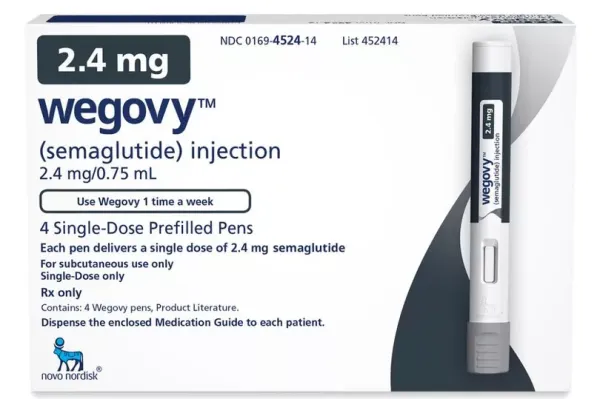
Weight loss jabs will be subject to a national clampdown following fears they are being abused.
The General Pharmaceutical Council (GPhC) has told online pharmacies they can no longer prescribe the weekly injections after reading a patient questionnaire, and instead must verify whether a user is actually dangerously overweight. The guidance comes after England’s top doctor Sir Stephen Powis warned appetite-suppressing jabs should not be used just to get people “beach body ready” as they can come with dangerous side effects.
Jabs such as Wegovy and Mounjaro were originally approved just for Type 2 diabetes but are now approved on the for people who are obese and have other health problems as a consequence. They became popular globally after celebrities including Sharon Osbourne, Elon Musk and even ex-PM boasted about buying them privately for weight loss. People who are not obese are buying them online and huge demand has led to global shortages. The new clampdown applies to online pharmacies, not the drugs' manufacturers.
READ MORE:

Duncan Rudkin, chief executive at the GPhC, said: "The message of this updated guidance is clear; online pharmacies should only supply a medicine if the prescriber has had an appropriate consultation with the person, and has made sure they have all the necessary information to check if that medicine is safe and suitable for them...
"We know online pharmacy services can provide a very valuable service, but through our inspections and investigations, we've seen too many cases of medicines being supplied inappropriately online and putting people at risk. This updated guidance will support online pharmacies to protect their patients, and we expect them to act now to make sure these safeguards are in place."
Until now people have reportedly lied about their weight on online pharmacy forms and submitted a photo of them in baggy clothes, before being able to collect a private prescription. The new guidance states online pharmacies must verify the buyer's body mass index (BMI) via a video consultation, in person, or through accessing GP or medical records.

Weight-loss drugs have also now been added to the list of "high-risk" medicines requiring extra safeguards. The new guidance backs up regulatory standards. If pharmacists do not adhere to the guidance, the GPhC says they are unlikely to be meeting standards and could face enforcement action. This could include fitness to practice investigations or inspections, conditions being put on the pharmacy and improvement plans.
The jabs slow digestion and reduce appetite by mimicking the glucagon-like peptide 1 (GLP-1) hormone which regulates hunger and feelings of fullness. The National Institute for Health and Care Excellence (NICE) recommends Mounjaro on the NHS as an option for patients with a body mass index (BMI) of 35 with at least one obesity-related condition. This is known as obesity class II where everyday movements are much more strenuous and the risk of secondary diseases is increased significantly. Anyone with a BMI over 30 is considered obese.
The reported comments by NHS England’s medical director Professor Stephen Powis at a conference last summer where he said people were abusing the drugs to “get beach body ready”. He warned of a wave of young women being admitted to A&E after buying the jabs, some who had eating disorders and were using the appetite-suppressing drugs as a new way to starve themselves.
Nick Kaye, chairman of the NPA, which represents 8,000 independent community pharmacies, said: "Delivering good care whilst maintaining the highest levels of patient safety is the number one priority for pharmacies and we hope this updated guidance will help to protect the safety of patients needing weight loss injections and other higher risk medication. It's also important patients avoid unregulated sellers of medication, such as beauty salons, who could pose a serious risk to their health."

The new rules also state that clinicians must ask for details of the patient's GP and get the patient's consent to contact them about the prescription. The prescriber should "actively" share all relevant information about the prescription with other health professionals involved in the care of the person.
"If the person does not have a regular prescriber, such as a GP, or if there is no consent to share information, the prescriber should then decide whether it is safe to prescribe," the guidance said.
It also said all firms must demonstrate there are no conflicts of interest such as offering "incentives to prescribers to issue prescriptions".